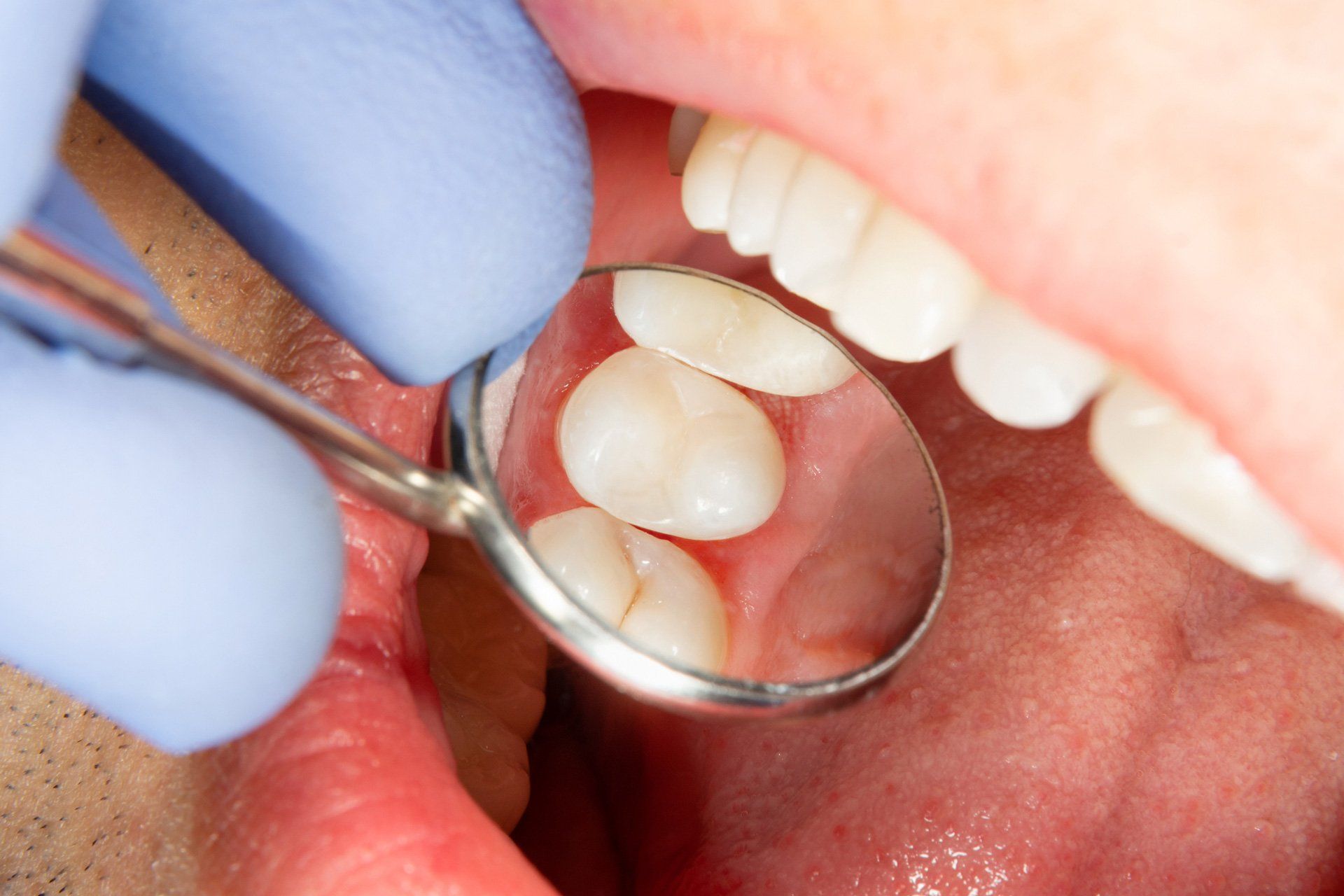Treat Infected or Decaying Teeth with Professional Root Canal Procedures in Pittsburgh, PA
Endodontics (also called a root canal) is done when decay will likely damage or has already killed a tooth. During a root canal, a dentist or endodontist removes the pulp from the center of a tooth and fills the pulp cavity. This can prevent the development of a painful infection in the pulp that may spread to other teeth. A root canal can also treat an infection that has developed into an abscessed tooth. This procedure can relieve toothache, stop infection, and promote healing.
First, the dentist will numb your gums with a substance that feels like jelly. After your gums are numb, the dentist will inject a local anesthetic that will completely numb the teeth, gums, tongue, and skin in that area. Sometimes nitrous oxide gas will be used to reduce pain and help you relax.
The dentist may separate the decayed tooth from the other teeth with a small sheet of rubber on a metal frame. This protective rubber sheet also helps stop liquid and tooth chips from entering your mouth and throat.
The dentist will use a drill and other tools to remove the pulp from the tooth and will fill the inside part of the tooth below the gum line with medicines, temporary filling materials, and a final root canal filling.
After the root canal, a permanent filling or crown (cap) is often needed. If a crown is needed, the dentist removes the decay, and then makes an impression of the tooth. A technician uses the impression to make a crown that perfectly matches the drilled tooth.
The tooth may be fitted with a temporary crown until the permanent crown is made and cemented into place.
What To Expect After Surgery
After a root canal, your lips and gums may remain numb for a few hours until the anesthetic wears off. Later you may have throbbing pain, which you can treat with pain medicines, such as ibuprofen, acetaminophen, or a stronger prescription painkiller. The pain usually lasts only a day or two.
Crowns that seal the top of the tooth and strengthen it may come loose over time. They may need to be repaired, redone, or cemented on again.
Why It Is Done
A root canal is needed when tooth decay is likely to cause permanent damage to the pulp or has already done so.
How Well It Works
A root canal removes the pulp inside the tooth and replaces it with filling material. It can effectively treat or prevent an infection.
Risks
If you have an infected tooth, bacteria from the mouth can enter the bloodstream and cause infections in other parts of the body. People who have a hard time fighting off infections may need to take antibiotics before and after a root canal. Such people include those who have artificial heart valves or were born with heart defects.
What To Think About
Because a root canal removes the pulp inside the tooth, the tooth becomes more fragile and may break more easily if it is not covered with a crown or cap.
A root canal needs to be done as soon as possible to avoid a severe infection, which can damage the bone surrounding the root of the tooth and infect other teeth.
If you have a severely decayed or infected tooth, you may not want to go through the expense and discomfort of a root canal and crown fitting. Instead, you may choose to have the tooth removed (extracted). The space can be left open or restored with a fixed or removable bridge.
Reviews from real patients:
Dr. Runco and staff are extremely nice and very understanding / patient. They do exceptional work. This place makes going to the dentist easier especially if you have had a previous experience with a dentist that has caused a fear of going to the dentist. I was so nervous before I had my work done but they made me feel extremely comfortable and safe.
Rachel Marie
OUR LOCATION
Address: 6502B Steubenville Pike Pittsburgh, PA 15205






